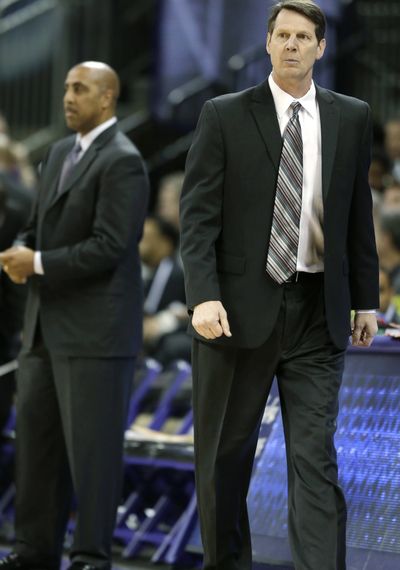Divided opinions on early signings

In the most perfect of basketball worlds, Washington State coach Ken Bone said, his recruiting classes each year would be finalized during November’s early-signing period, and the rest of the season would be spent focusing on his own team.
But that’s not how it works. Some players take longer to decide on a school, and so they prefer to wait until April to finalize their commitment. And schools sometimes want more time to get to know a recruit – or several recruits – before extending a scholarship offer.
“There’s a lot of things to find out that are very instrumental in who that person is and who they’re going to become … and the other way around,” Bone said. “The more that individual can study a program, a coaching staff, a better decision they can make, too.”
Bone and his basketball coaching brethren at least have the option to lock down an entire class in November if they choose to. Football coaches have no such choice, and the debate over whether college football should institute an early-signing period has picked up a bit of steam in the past few years.
Coaches remain divided on the issue. There are even dissenting viewpoints within WSU’s own athletic department, where coach Mike Leach isn’t thrilled about the idea but athletic director Bill Moos thinks WSU is exactly the kind of school that would benefit from such a practice.
Here’s Leach: “I can remember when I was 18, and making a decision in the time frame that exists now would have been very difficult. … Where they have it now is about the right amount of time. A kid should be able to change his mind up until February. We don’t want him to sign something early and regret it.”
But, as Moos said, an early-signing period in football would prevent WSU from losing recruits to bigger schools in the weeks leading up to the beginning of the signing period in February.
“The sooner we can secure someone and then get them committed, the better the opportunity for us to obviously not worry about losing someone late in the game,” Moos said.
He pointed to the example of Montrel Meander (though Moos did not name him), a prospect from Texas who had verbally committed to WSU before changing his mind and signing with the University of Texas.
“If we had signed that player back in an early-signing period, there’d be a significant penalty for him to change his mind,” Moos said.
There exists a school of thought that an early-signing period would help temper that phenomenon nationwide, and cut down on the practice of prospects committing and decommitting several times.
Critics of the idea, though, say that would only lead to more players regretting their binding decisions, and that flip-flopping commitments would only give way to more prospects asking to be released from their NLIs.